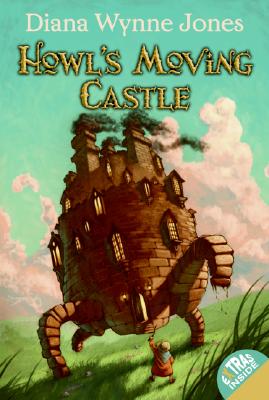 |
| HQN Books |
Sweet Trouble
Susan Mallery
2008
The Summary
"Jesse Keyes has done some serious growing up. With a steady job and a vibrant four-year-old son, Gabe, she's in a far better place than when she left Seattle five years ago...pregnant and misunderstood by almost everyone in her life.
"Now it's time to go home and face her demons. But her sisters, Claire and Nicole, aren't exactly impressed with the new and improved Jesse. And then there's Matt, Gabe's father, who makes it clear that he never wants to see her again despite the lust that still smolders between them.
"Jesse doesn't know if she can make up for all the mistakes of her past. But the promise of sweet nights with Matt might just give her the extra incentive she needs to make it worth the trouble..."
The Good
With
Sweet Trouble I finally rounded out the Bakery Sisters trilogy and completed the Keyes sisters saga. Although it was a little jarring to be transported five years into the future, especially considering
Sweet Talk and
Sweet Spot were so closely linked, I was pleasantly surprised by the beginning of Susan Mallery's third novel. Moreover, I was pleased by the character development of Jesse Keyes.
In
Sweet Spot, I was left with a lingering dissatisfaction over Jesse's disappearance. After a certain point, you literally don't hear a word about her. All the information is essentially secondhand: we only learn what happens to Jesse and where she ends up
after others discover where she finally landed. But, luckily, this novel resolves all those questions.
I like that Jesse matures as an individual. She grows up and takes responsibility for her actions, she holds a steady job, she learns how to take care of herself and her son--and she tries to make amends. While I don't like the circumstances that conspired against her (wrong place, wrong time, wrong man), as they seem a little contrived, I'm pleased with how she developed after things spiraled out of control.
And, oddly enough, I liked Gabe. That is, I like the way that Mallery characterizes Jesse's son. Some authors have a difficult time creating believable children in their novels, making them into micro-adults or simply struggling to reflect the appropriate characteristics of children. Mallery, however, succeeds in creating fairly believable characters and, moreover, believable children.
It's a sweet little romance about love and redemption. It's about making amends, healing hearts, and reuniting families and loved ones. And, even if it doesn't have the best pacing, it's easy to finish in a day or a little less.
The Bad
On a personal level, I simply didn't like the way this novel bounced back and forth in time. Sure, it was nice to have a peek into Jesse's life, to see where things went wrong and her life fell apart. You get to see a side of Jesse when she was younger, you get to see her side of the story--about what happened with Matt, what happened with Nicole and Claire--but I can't say I enjoyed it very much.
For me, the past is in the past. I already know the heartbreak and turmoil Jesse suffered. I already know what happened between her and Matt, and I already know she's moved past that moment in her life and managed to become a wonderful mother to a healthy, happy child. I know what happened, so I was less interested in how she first met Matt and fell in love--and more interested in what was
going to happen.
I skimmed, I admit it, but I won't be ashamed. I read enough to know I'm all caught up with the story, so I didn't miss anything particularly important.
The Ugly
Revenge: one word, a whole lot of hurt.
I understand why Matt is so upset. I mean, he missed the first four years of his son's life and he's missed many of the milestones that accompany those years; however, I should point out that
he made the decision to ignore Jesse's pleas.
He made the decision to cast her out, to disbelieve she carried his child.
Sure, she could have made the added effort to contact him later and tell him about Gabe, but, given the way he treated her in the first book (and we had the opportunity to relive it in
Sweet Trouble), I can understand her hesitation. He broke her heart once, and now he wants to break her heart again
by taking her son.
No. Just no.
I don't care how much money Matt has managed to accumulate. I don't care how much time he's had to brood over his heartbreak when he could have moved on with his life. I understand he's hurt, I understand he was devastated by Jesse's supposed infidelity, but I don't understand why on earth he would ever think trying to take Gabe was ever a good idea. I mean, she's attempting to make amends, she's offering an olive branch, and he has the audacity to try and take her child
for revenge?
It makes my blood boil.
